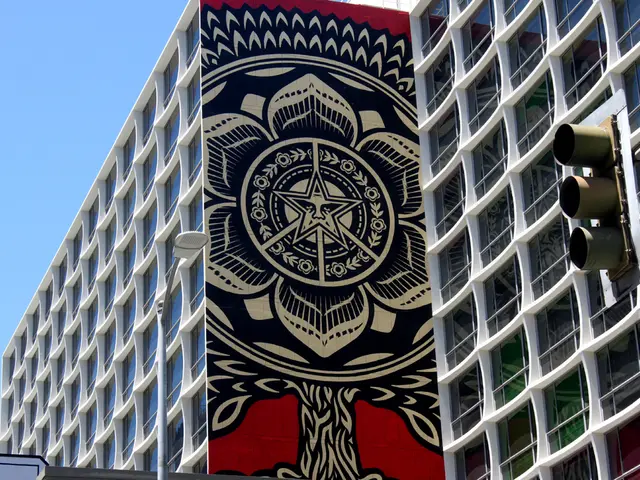Mortgage-backed securities: Financial instruments derived from bundled residential mortgages, offering investors a profitable avenue while distributing mortgage risk across multiple parties.
Mortgage-backed securities (MBS) continue to play a crucial role in the economy, supporting the housing market and providing increased liquidity. These financial assets, created from portfolios of residential mortgages, have been a staple of the mortgage market since the 1970s.
The first modern-day MBS was issued by Ginnie Mae in 1970, followed by government-sponsored enterprises Fannie Mae and Freddie Mac. The private sector joined the fray in 1977 with the issuance of the first private MBS by Lew Ranieri of Salomon Brothers.
MBSs are created by aggregators, who buy and sell mortgages, finding the right kind of mortgages for the security they want to create and sell to investors. These securities are often used to increase the supply of conforming loans and push down mortgage rates for borrowers.
However, the housing collapse of 2007-08 resulted in enormous losses in MBSs, many of which contained subprime loans. This led to a government bailout of MBSs.
Investing in MBSs offers relatively safe investments with higher yields than U.S. government bonds, but with limited potential for price growth and risks associated with real estate loans. MBSs are structured into a security that pays out interest, similar to a bond or a bond fund.
MBSs can have various features, including pass-through securities, collateralized mortgage obligations (CMO), commercial mortgage-backed securities (CMBS), stripped mortgage-backed securities (SMBS), agency mortgage-backed securities, non-agency mortgage-backed securities, residential mortgage-backed securities (RMBS), and more.
The release of Fannie Mae and Freddie Mac from conservatorship would have several significant implications for the MBS market.
Potential Increase in Mortgage Rates: Exiting conservatorship, especially without an explicit government guarantee, would increase investor risk. Investors would likely demand higher yields to compensate, resulting in higher guarantee fees charged by Fannie and Freddie, which would then be passed on to mortgage borrowers, increasing mortgage rates by approximately 10 to 25 basis points (0.10% to 0.25%).
Higher Capital Requirements: Freed from conservatorship, Fannie Mae and Freddie Mac might need to hold more capital to manage risks and potential losses. To build this capital, they could raise guarantee fees, further increasing the cost of mortgage finance.
Market Uncertainty and Volatility: The lack of a clear timeline and legislative framework, combined with political debate and potential changes in ownership structure, creates uncertainty for MBS investors. This could cause increased market volatility as investors adjust their expectations on risk and valuation of securities backed by these GSEs.
Impact on Mortgage Credit Availability: Increasing rates and guarantee fees might tighten mortgage credit availability or increase borrowing costs, potentially cooling down an already sensitive housing market.
Role of Government Guarantee: The presence of an explicit or even implicit government guarantee is crucial to stabilizing markets. Even an implicit guarantee, without full conservatorship, could mitigate some rate increases but would not fully prevent a rise in mortgage costs.
In summary, releasing Fannie Mae and Freddie Mac from conservatorship would likely lead to higher mortgage rates, increased capital requirements for the GSEs, greater market uncertainty, and potential tightening of mortgage credit. The extent of these effects depends heavily on the nature of government backing retained post-conservatorship and how the transition is managed politically and financially.
References:
- Bloomberg
- Wall Street Journal
- New York Times
- Financial Times
- The Hill
- The banking-and-insurance sector, particularly investors, have a significant interest in the release of Fannie Mae and Freddie Mac from conservatorship, as it could impact their investments, business decisions, and returns on mortgage-backed securities (MBS).
- The business implications of releasing these government-sponsored enterprises (GSEs) extend beyond the mortgage market, potentially affecting real-estate industry players such as homebuilders and real estate developers, due to the potential rise in mortgage rates and tightening of mortgage credit availability.
- The decision to exit conservatorship for Fannie Mae and Freddie Mac could impact the overall finance industry, including the investments made by private equity firms, hedge funds, and mutual funds in MBS and other financial assets, influencing their finance strategies and portfolios.







